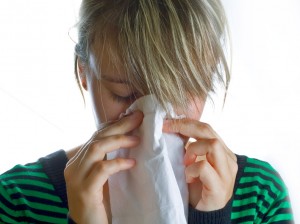 Have you ever wondered just how many particles there are in your home’s air space, right now, that are actively lowering the quality? Well, you don’t have to wonder if you choose to get an air quality test from a trusted indoor air quality expert in Delaware and Maryland. The results of the test can show you definitively which pollutants and contaminants are floating around in your indoor air. With that knowledge, you’ll be able to confidently research your options for improving air quality.
Have you ever wondered just how many particles there are in your home’s air space, right now, that are actively lowering the quality? Well, you don’t have to wonder if you choose to get an air quality test from a trusted indoor air quality expert in Delaware and Maryland. The results of the test can show you definitively which pollutants and contaminants are floating around in your indoor air. With that knowledge, you’ll be able to confidently research your options for improving air quality.
There are various types of contaminants that can lower your air quality, and they’re mostly found in these categories:
Particulate Matter
This category makes up particles that are suspended in the air, and they can be either solid or liquid, and come in various shapes and sizes. The most troublesome particulates are those about 10 micrometers in diameter or smaller, since they’re capable of being inhaled. That can lead to various health effects, depending on the contaminant.
A common source of particulate matter is smoke from cigarettes and wood combustion, but this may not be a leading source of particulates in most homes. For homeowners, the particulates they commonly house include most types of allergens, such as skin flakes, dust, pet dander, mold spores, and dust mites.
Your best bet at reducing particulate matter is with air filters and air purifiers. These devices are installed at various points in your HVAC system to trap these contaminants for later disposal. Each filter and purifier has different ratings and methods for collecting contaminants, so it can be beneficial to have a combination of them throughout the home.
Also, it’s worth noting that lowering excessive humidity with a dehumidifier may also help. By reducing moisture in the air, it’s harder for contaminants to circulate.
Chemical Pollutants
The most common indoor chemical pollutant you may have heard of is volatile organic compounds. Unfortunately, VOCs are found in many products that we tend to use in our homes: air fresheners, furniture, nail polish remover, wallpaper… the list goes on, and it’s surprisingly large.
Aside from ensuring that your home is properly ventilated, this is where higher grades of air filters and purifiers can make a difference. In some cases, it may be better simply to remove the source of the contaminants, but that isn’t always feasible. An expert can help you decide the best course of action.
Microorganisms
The right combination of air filters and purifiers can work wonders for your air quality, but they can’t do anything about living contaminants. For that, you’ll need a special type of air purifier equipped with an ultraviolet light.
UV air purifiers work much like normal air purifiers, but their UV light will bathe contaminants in a lethal dose of radiation. Of course, this radiation is harmless to humans, and you can find UV lights in plenty of applications.
The types of contaminants that require a UV air purifier typically include:
- Bacteria
- Seasonal viruses
- Mold spores
Is your home in need of an air quality test? Contact Atlantic Refrigeration & Air Conditioning, Inc. today to schedule a service.
